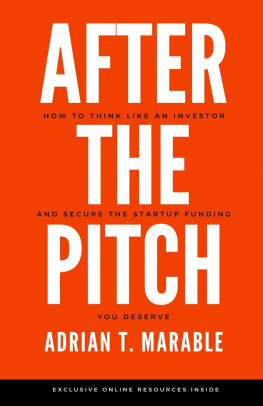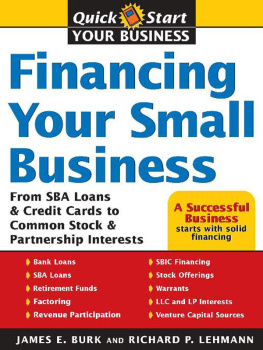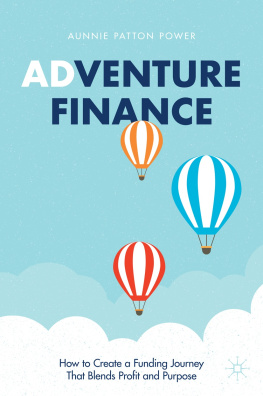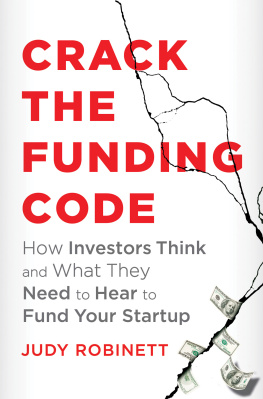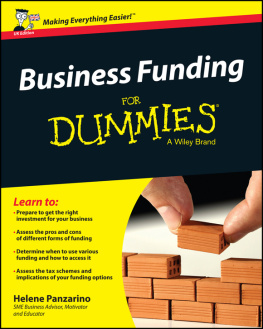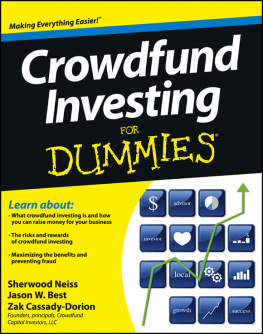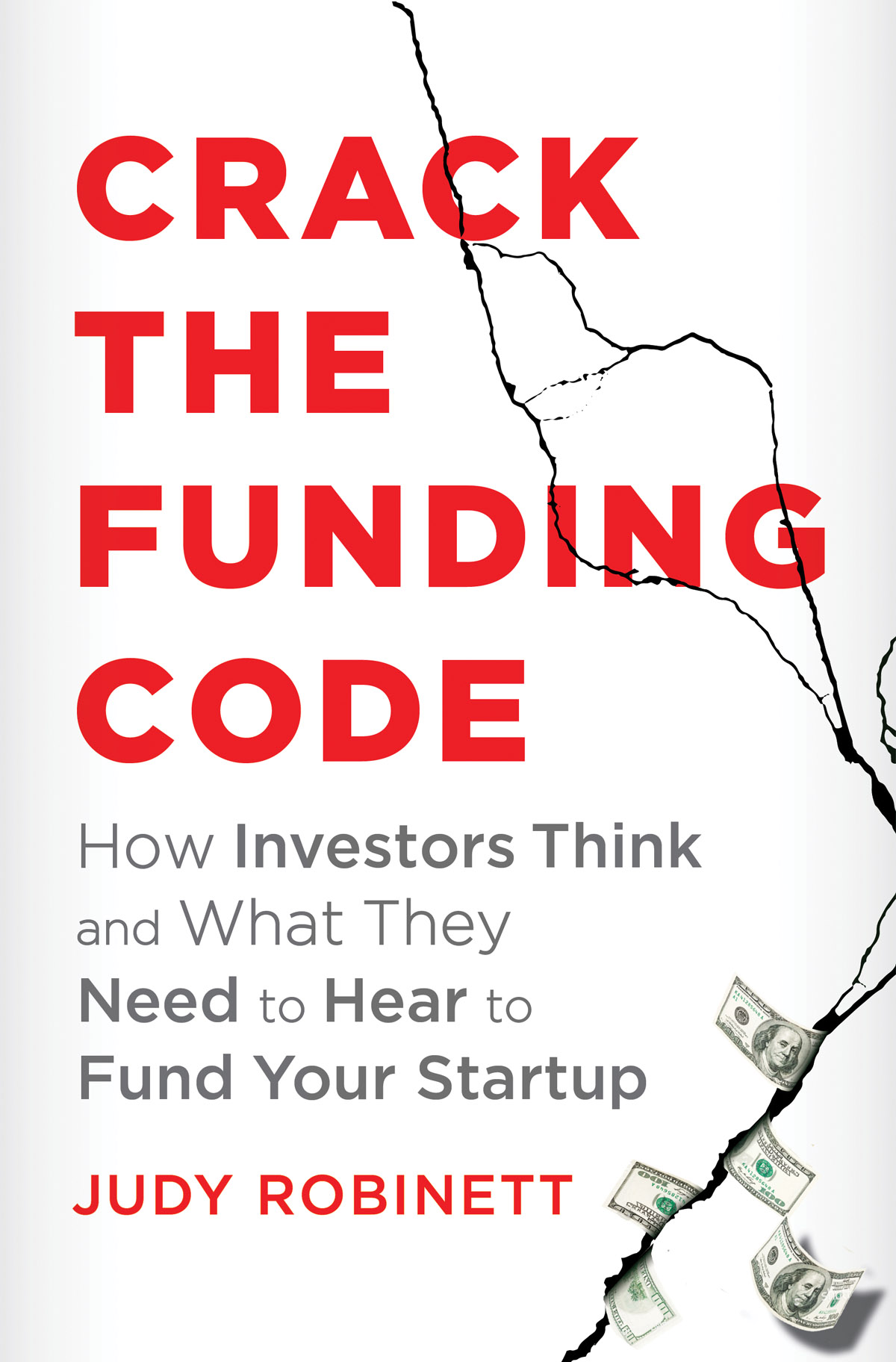CONTENTS
Guide
This book would not have been possible without Dee Burgess, and the never-ending help and support she gave me during the writing, editing, and publishing process.
Many thanks to the brothers I never had, Ivan Dimov and Sergey Sholom, who are the best business partners any person could have wished for, and who have supported my efforts in so many ways.
Thank you to Jared Burgess, who pitched in and helped with references; Mike Young, director, and Tanner McClune, Northern USU SBDC region, who edited the artwork. Between them, they did pretty much anything that was needed to get this book into the hands of the publisher.
Thank you to Victoria St. George of Just Write, who, despite pushing it to the wire, knocked it out of the park again.
Thanks to my agent, Wendy Keller, who encouraged me to take up the challenge again, and thanks to Tim Burgard, my editor at Harper Collins, for all of his patience and support in this endeavor.
For everyone who helped, supported and contributed to this book: Thank you all for all you did to make this book happen. Thank you Kevin Harrington, Annette Lavoie, John Livesay, Richard Swart, Colin McClive, Alex Migitko, Cheryl Snapp Conner, Cindy Padnos, Cole Smith, Dave Berkus, David Desharnais, David Meister, Dominic Giancona, Jeff Harvey, Kay Koplovitz, Leo Hopf, Marcia Nelson, Marilyn Magett, Matthew Sullivan, Paul Grossinger, Paul Martens, Ramphis Castro, Reginald Hughes, Sean Sheppard, Will Bunker, Loretta McCarthy, and Andrew Goldner. Your wisdom and business acumen will help a lot of worthy entrepreneurs to get the funding they need to build great businesses.
Please read each statement and then select the one that best describes you. If none of the statements seem to apply to you, please select the one that is closest.
1. Your Networking Strategy
a. You have no real strategy. You accept invitations to LinkedIn, Facebook, or other social-media sites. You see it as overwhelming or a waste of time, certainly not a high value activity. Youre more likely to post about your friends or weekend activities.
b. You collect peoples business cards and sometimes type them into your address file, maybe with notes on who they are or what you talked about. You occasionally remember to post on social media but it seems to have no effect. You joined industry organizations with good intentions, but never have the time to leverage all that potential.
c. You actively build your network. You not only belong to industry organizations, but you also volunteer and/or serve on boards. You participate regularly. You stay in personal contact with lots of people and share relevant and valuable content on social-media sites. You figure if you do enough good, it will come back to you eventually.
d. You have a clear written strategy that helps you do three things: target who you want and need in your network; connect with them proactively; and add value to everyone within your clearly identified power circles. You are proactive in reaching out to your network with pertinent information.
2. Conferences
a. You dont attend a conference or professional meeting unless your boss sends you and pays for it. You consider it a perk.
b. You try to find time to attend monthly meetings of your professional organizations and make an effort to attend the yearly conference sponsored by your chapter. You have attended their national conference once or twice.
c. You attend monthly meetings for your professional organization, have given presentations, and attend all annual conferences. You get business cards at each conference, keep track of who is who, and stay in touch with the most valuable people you meet.
d. You carefully select conferences both for the opportunity to meet influential people in your field and to meet critical players in other industries and professions. You actively seek out key people at conferences, engage with them, and build rapport. You add those key people to your contact list, assess where they belong in your power circles, and maintain the relationship accordingly.
3. Wide, Deep, Robust Network
a. Most of the people in your network work in your organization, in your profession, and are at a peer level to you. Youre not the kind of person the big dogs spend time with.
b. Most of the people in your network work in your organization and profession but you have made an effort to include people that are both higher and lower than you in your organizations hierarchy.
c. You have many people in your network that are at a different organization level than you, in different disciplines, and who have influence in their field or profession. You appreciate different perspectives and feel you can be more effective through diverse interactions.
d. You target key people in different disciplines, organizational levels, locations, ages and more. You make friends with people like you who are also competent, responsive, and well connected. You build strength in your network by making sure you have more than one contact in critical ecosystems (industries or circles of influence like politics, media).
4. Power Connecting
a. You rarely contact those in your network unless you need something like a job recommendation, to find out about job openings for yourself or a friend, or to share office or industry gossip.
b. You contact people in your network if you need to know something or have a question that they can help you with. People contact you in the same way. You try to help when you can, if you have time.
c. You have a decent network. If you sent an email asking for solutions to a problem, several people would respond. You keep in reasonably good touch and make sure that you thank people who help you, send you information, or include you in what they are doing.
d. People in your network trust you. When you send them a referral, they know that this person can help them or meet their needs. You are thoughtful about who you reach out to and always seek to create mutual value for all involved. You respond to most requests and communications within twenty-four hours.
5. Managing Your Network
a. You do not actively manage your network. You think you might have most peoples current contact information, but its hard to be sure.
b. You keep an address list of your connections with email, phone numbers, and other contact information. It is not current, and you also have a stack of the business cards you have gotten over the years.
c. You keep a list (electronically or on paper) of your connections. Its organized and as best as possible, up to date. You include notes on who is who, where you met them, and sometimes even physical descriptions.
d. You use a management system for all your connections. You have identified your power circles: your top five, key fifty, and vital one hundred connections. You review regularly and as you meet new people determine if they should move into your power circles. You have a system for staying in touch with all of them. You learn as much as you can about your connections so that you can add the most value to them and your network.
6. Your Share
a. When you meet new people you do not typically tell them about yourself beyond your name and title, unless they ask things like whether or not you have kids or your favorite sports team.
b. When meeting a new person, you tell them what you do but often feel like you are self-promoting and not accurately conveying your value or what you can do well.
Next page


